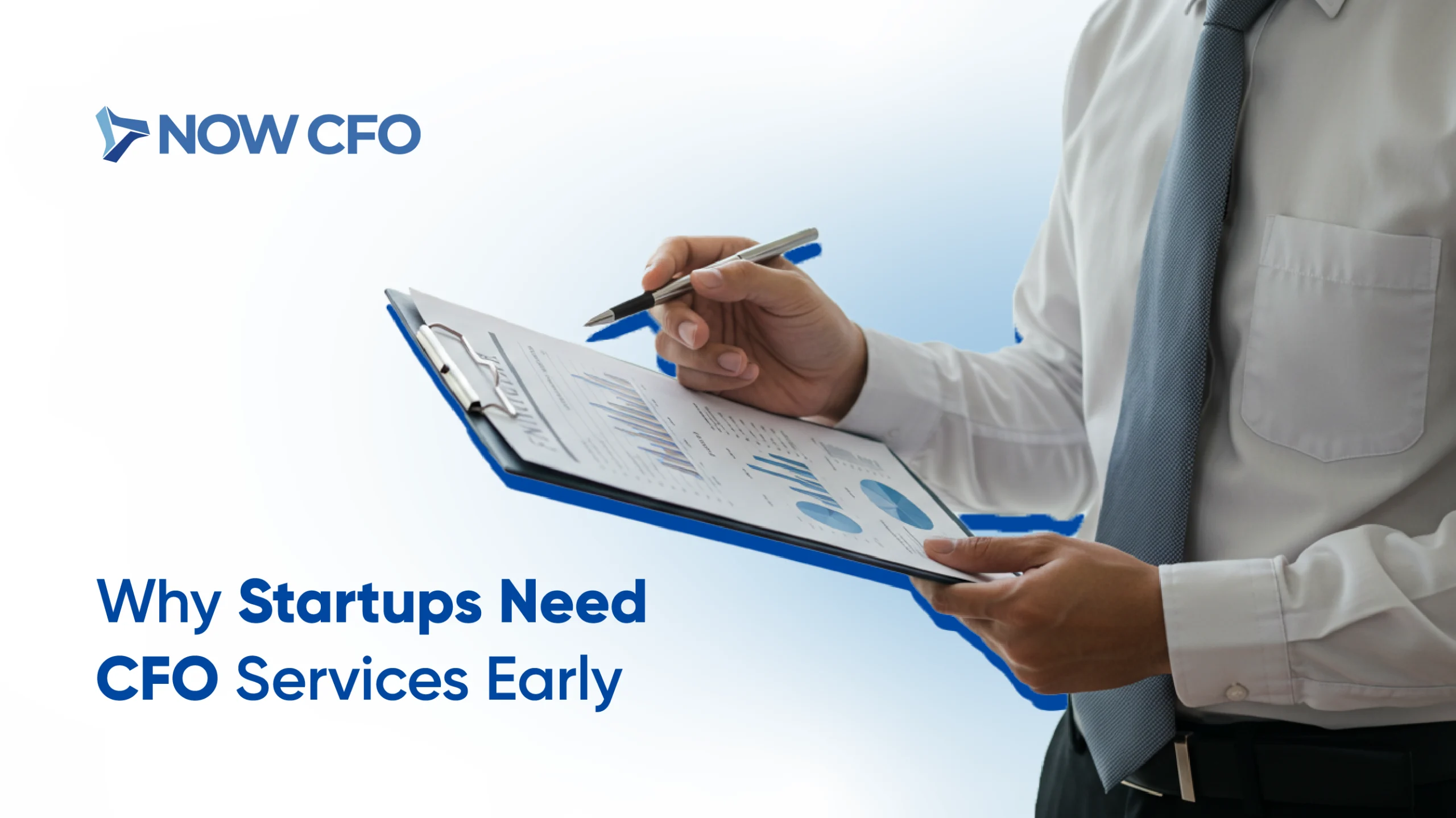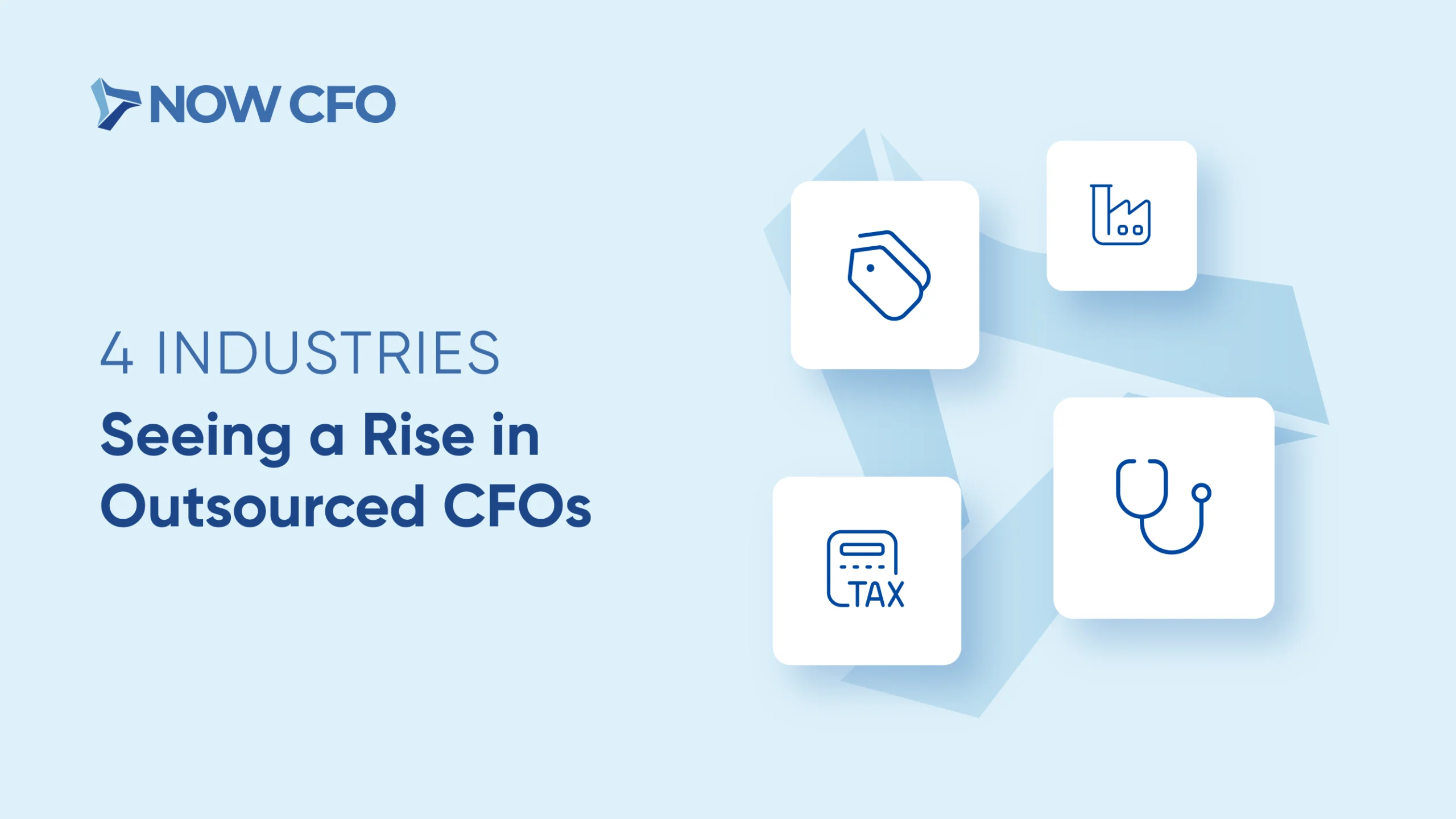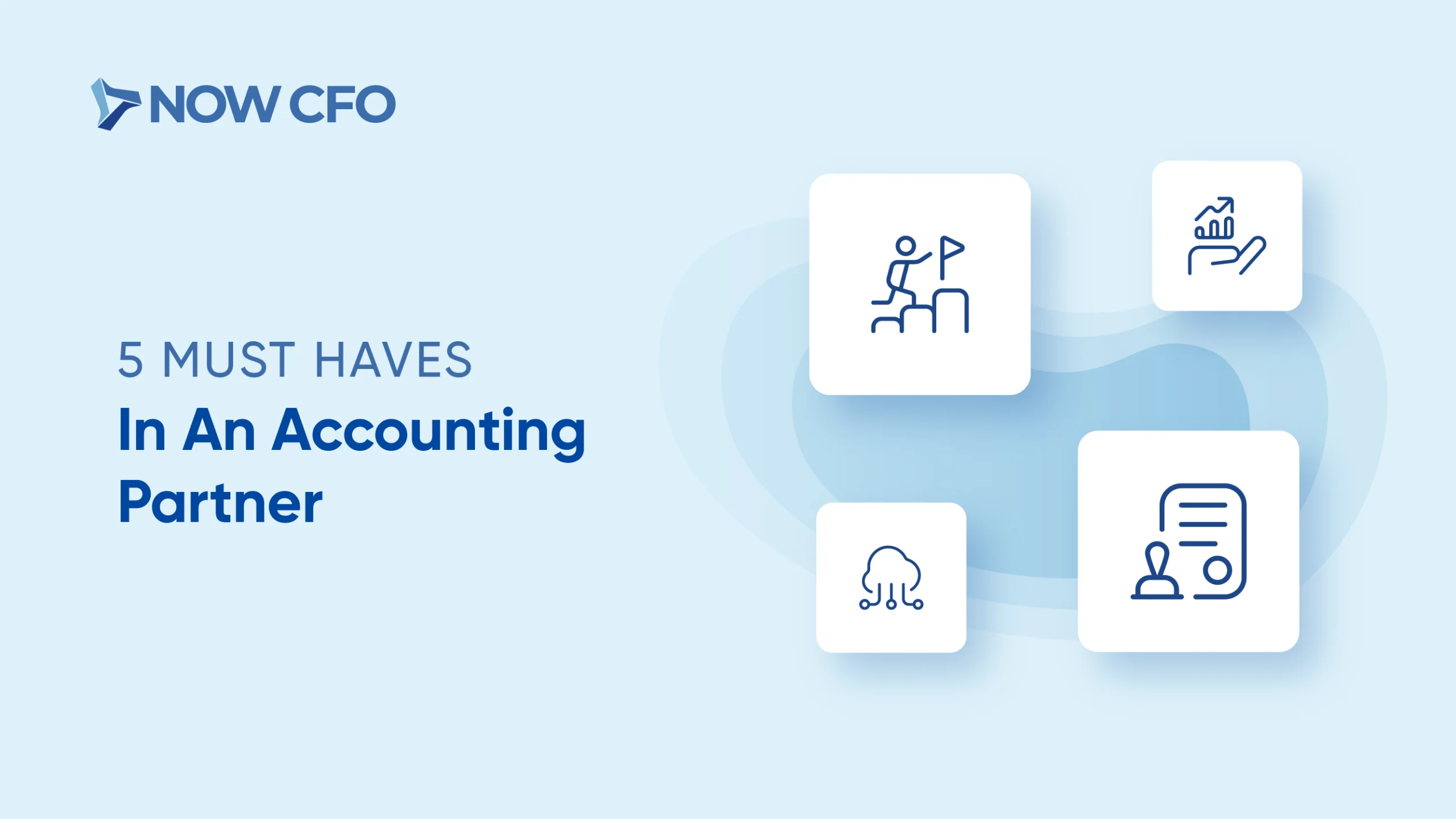
Choosing the right outsourced accounting partner is a crucial decision for owners. As more SMEs recognize the advantages of delegating finance functions, outsourcing has become vital for efficiency and growth.
Outsourcing with a strategic partner lets you focus on core business goals. It delivers scalable accounting services, clear financial visibility, and timely insights.
1. Proven Industry Experience
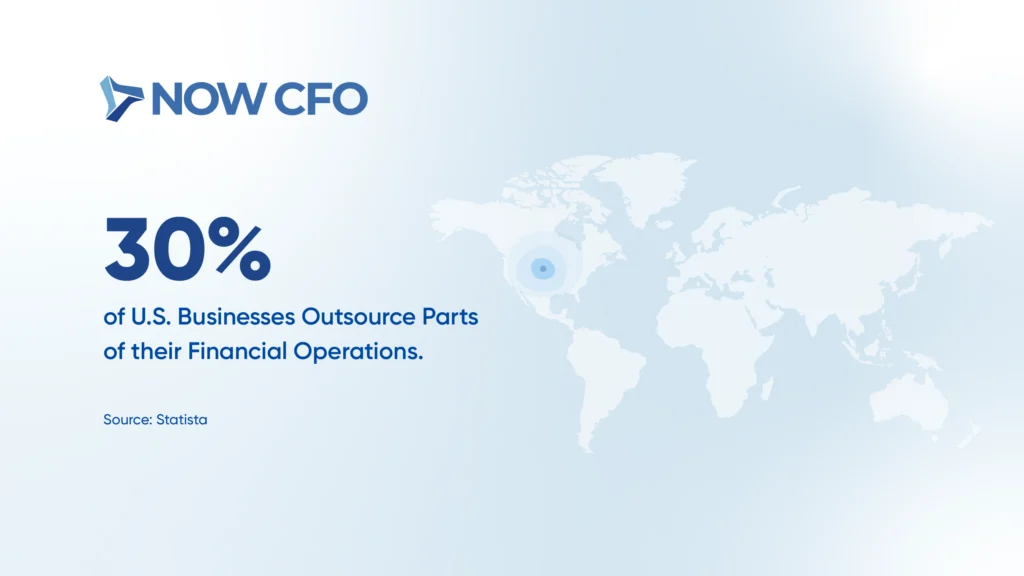
30% of U.S. businesses outsource part of their financial operations, signaling a shift from in-house teams to external providers. Outsourcing reflects a growing demand for cost savings and access to specialized expertise.
An outsourced accounting partner navigates unique regulations, reporting standards, and operational challenges. Additionally, consultants provide tailored solutions for businesses, thereby reducing operational burdens.
Source: Statista
2. Transparent Pricing
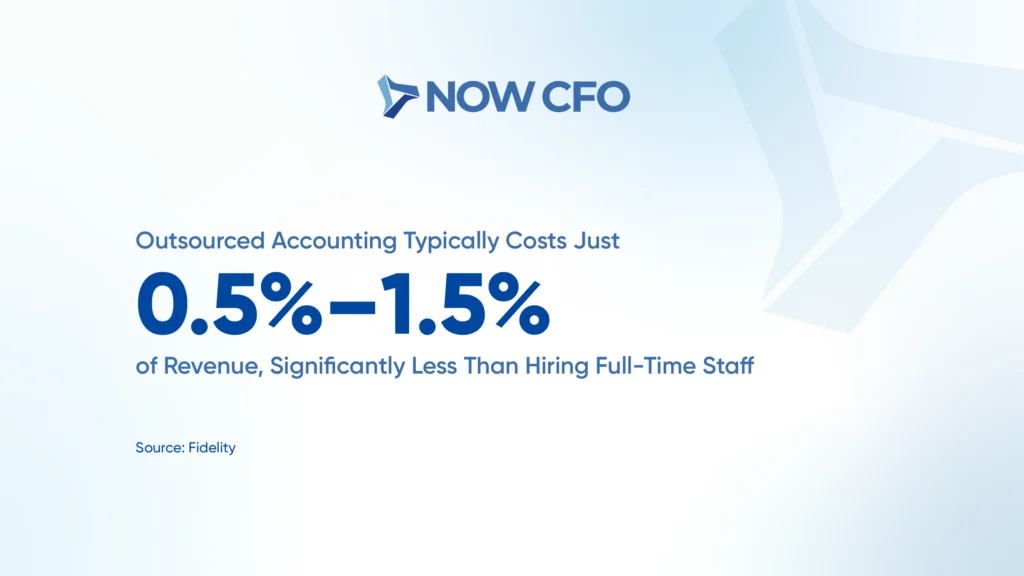
A transparent pricing structure helps businesses manage costs with confidence. Outsourced accounting costs range from 0.5% to 1.5% of annual revenue, significantly lower than full-time staff.
With transparent pricing, business owners fully see where their money goes. By eliminating hidden fees, companies can focus on maximizing the value of strategic financial guidance.
Source: Fidelity
3. Alignment With Strategic Goals
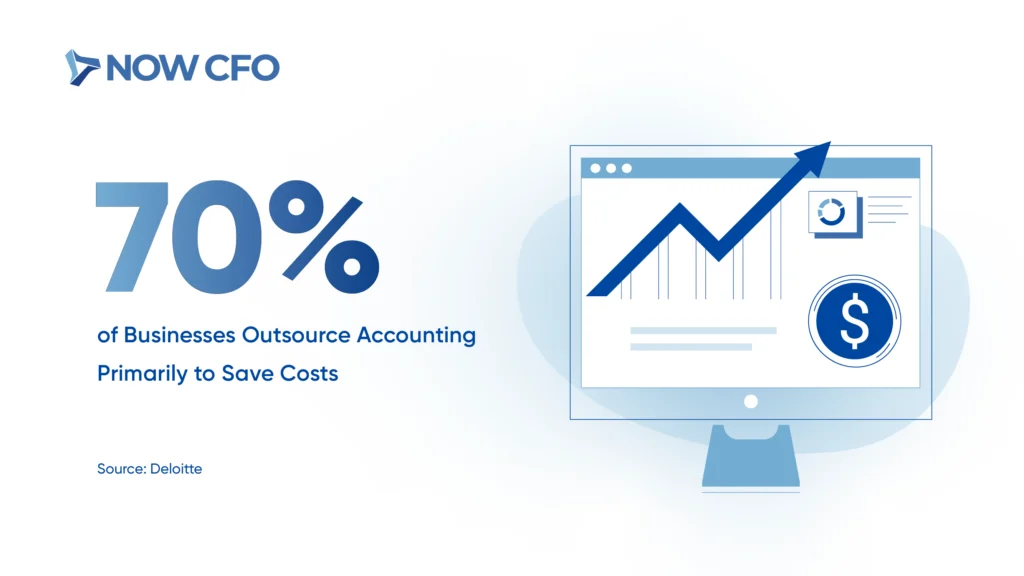
70% of businesses cite cost savings as the primary reason for outsourcing accounting services. Outsourcing reduces overhead and ensures resources are invested in growth-driving activities.
Strategic budgeting, forecasting, and KPI tracking in outsourced accounting help clients optimize savings. These practices ensure the financial strategy stays aligned with long-term, sustainable growth.
Source: Deloitte
4. Tech Integration Capabilities
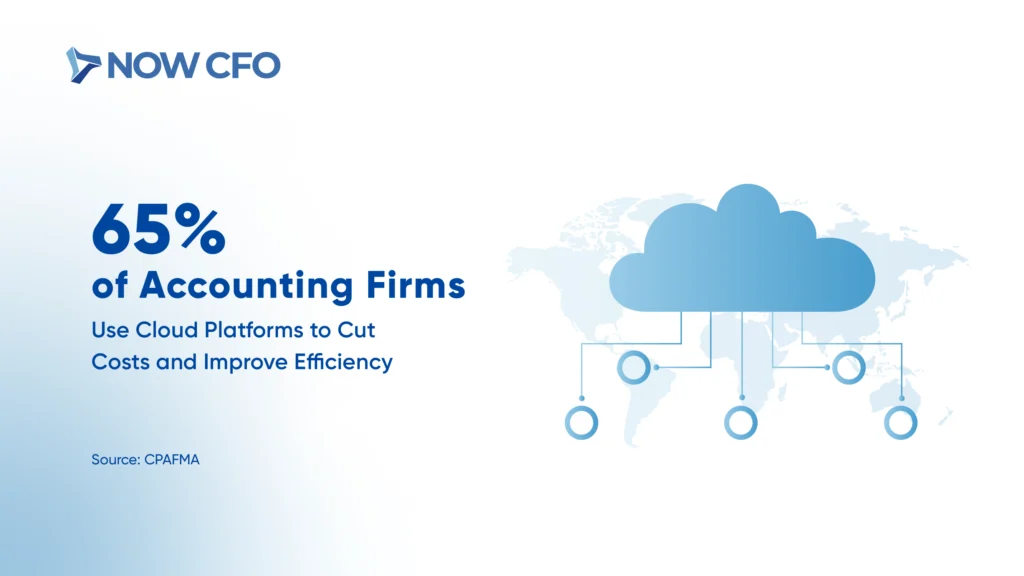
65% of accounting firms use cloud-based platforms to reduce costs, streamline workflows, and enhance real-time collaboration. These tools help to work efficiently while clients have immediate access to accurate financial information.
Integrating systems like QuickBooks, Xero, and ERP platforms maximizes operational efficiency. These tools deliver real-time insights and enable proactive financial decision-making.
Source: CPAFMA
5. Scalable Service Model
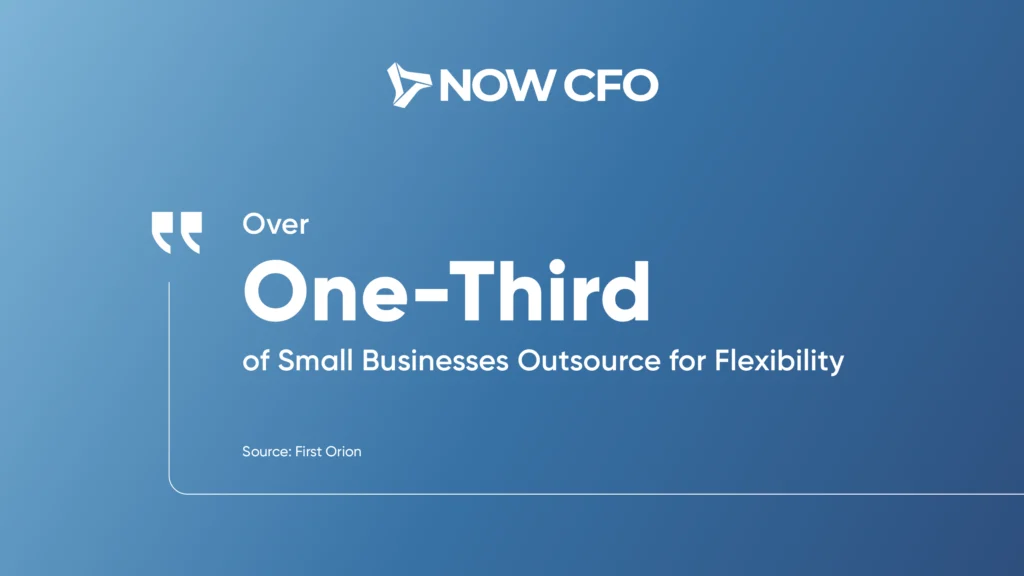
More than one‑third of small businesses outsource specifically for flexible service models. A good outsourced accounting partner offers flexible service tiers that adjust with business growth. Whether it’s basic bookkeeping or full controller support, scalability ensures businesses get exactly what they need without overpaying.
Source: Clutch
Conclusion
Partnering with an outsourced accounting partner can transform your financial operations. Outsourced bookkeeping offers industry-relevant experience, accuracy, scalability, and a dedicated point of contact.
Want to explore how NOW CFO’s tailored finance partnership to elevate your business? Start with a quick strategy session. Choose what suits you best, and start building your competitive advantage.
Frequently Asked Questions
What to Look for in an Outsourced Accounting Partner?
Choose a provider with proven industry experience, transparent pricing, scalable services, and advanced technology integration. Clear communication and alignment with your strategic goals are essential for long-term success.
How Much Do Outsourced Accounting Services Typically Cost?
Outsourced bookkeeping and accounting usually cost 0.5% to 1.5% of annual revenue. This cost is often far less than the expense of hiring a full-time, in-house team.
Can Outsourced Accounting Help My Business Grow?
A strategic outsourced accounting partner provides financial insights, forecasting, and KPI tracking to support informed decision-making. These services help reduce costs and direct resources toward growth opportunities.
Why is Tech Integration Important in Outsourced Accounting?
Cloud-based accounting platforms increase efficiency and reduce costs. They also give you real-time access to accurate financial data for better decision-making.
Will I Have a Dedicated Point of Contact with Outsourced Accounting?
A dedicated consultant consistently communicates and is accountable to each client. The consultant also tailors support to fit the business’s specific needs.




